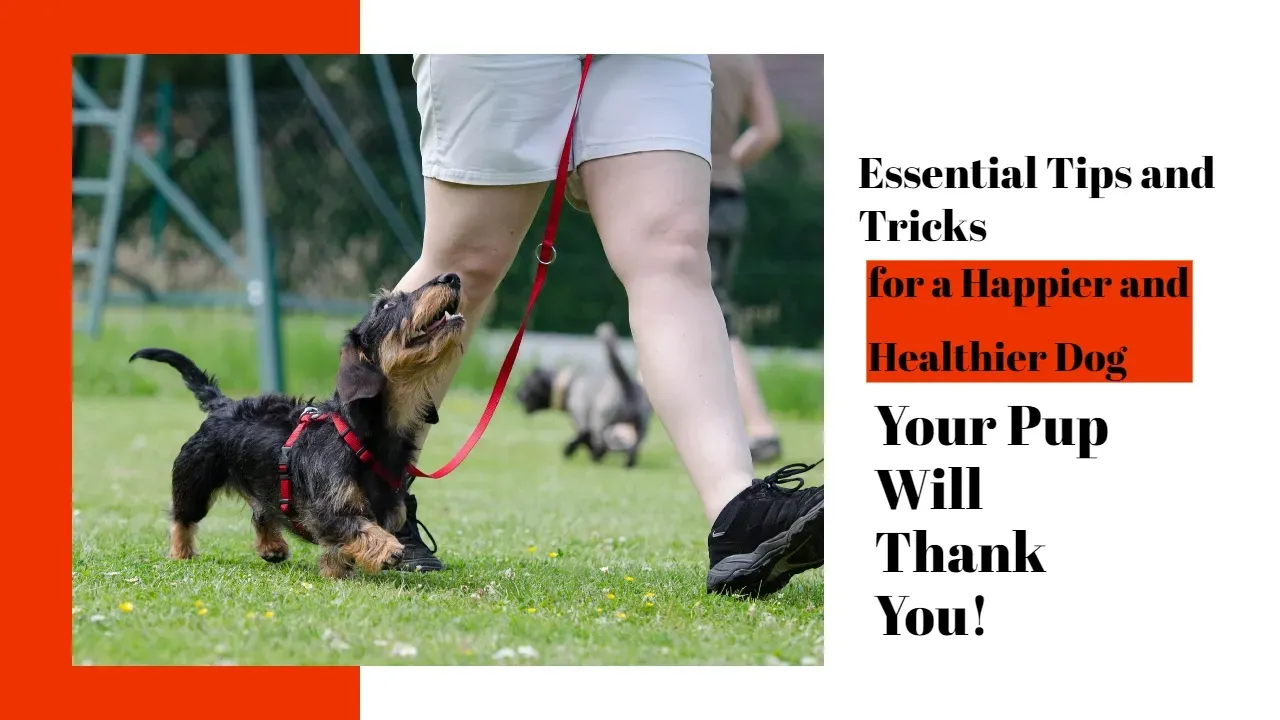Unlock the Secrets to Being a Top-Notch Dog Owner with These 11 Tips
As a dog owner, you want to provide the best possible care for your furry friend. But sometimes, it can be difficult to know where to start. In this article, we will share 11 tips and tricks that every dog owner needs to know.
ToC
Tip #1: Socialize Your Dog Early
Socialization is important for dogs to learn how to behave around other people and animals. Start socializing your dog early to help them become well-adjusted and friendly.
Early socialization is crucial in shaping a dog’s personality and behavioral responses. Introducing your puppy to various people, animals, environments, and situations helps them become well-adjusted and less fearful in different settings.
- Start Young: The ideal socialization period for puppies is between 3 and 14 weeks of age.
- Safe Interactions: Ensure all interactions are controlled and positive. Puppy classes can be a great, structured way to socialize.
- Diverse Experiences: Expose your dog to different sounds, sights, and surfaces. Gentle handling by various people is also beneficial.
Tip #2: Proper Training Is Key
Proper training is essential for your dog's safety and happiness. Invest time and effort in training your dog to help them become well-behaved and obedient.
Training lays the foundation for a harmonious relationship between you and your dog. It’s not just about commands; it’s about communication.
- Positive Reinforcement: Use treats, praise, and play to reward good behavior.
- Consistency is Crucial: Be consistent with your commands and rules. Mixed signals can confuse your dog.
- Patience Pays Off: Training takes time. Be patient, and celebrate small victories.
Tip #3: Keep Your Dog Groomed
Regular grooming is important for your dog's health and hygiene. Make sure to groom your dog regularly to keep them clean and healthy.
Regular grooming is essential not just for keeping your dog looking good but also for their overall health.
- Regular Brushing: Depending on the breed, your dog may need daily to weekly brushing to avoid matting and to reduce shedding.
- Baths: Bathe your dog as needed. Too frequent bathing can strip their coat of natural oils.
- Nail Trims and Dental Care: Keep nails trimmed to avoid discomfort and maintain oral hygiene to prevent dental issues.
Tip #4: Establish a Routine
Establishing a routine for your dog can help them feel more secure and comfortable. This includes feeding, walking, and playtime.
Dogs thrive on routine. Regular schedules for feeding, potty breaks, walks, and bedtime help your dog feel secure.
- Consistent Feeding Times: This helps with digestion and potty training.
- Regular Exercise: Same-time daily walks or play sessions help expend energy and keep your dog mentally stimulated.
- Structured Training Sessions: Regular, short training sessions reinforce learning and behavior.
Tip #5: Provide a Balanced Diet
Nutrition is key to your dog's overall health and well-being. Make sure to provide a balanced diet that includes high-quality protein, carbohydrates, and fats.
Nutrition plays a pivotal role in your dog’s health. The right diet can impact everything from coat health to energy levels.
- Quality Food: Choose high-quality commercial food or consult a vet about a balanced homemade diet.
- Right Portions: Overfeeding can lead to obesity. Ensure portion sizes are appropriate for your dog’s size, age, and activity level.
- Consider Age and Health: Puppies, adults, and senior dogs have different nutritional needs, as do dogs with specific health conditions.
Tip #6: Keep Your Dog Active
Regular exercise is important for your dog's physical and mental health. Make sure to provide plenty of opportunities for your dog to get exercise and play.
Physical activity is as important for dogs as it is for humans. It keeps them fit, agile, and happy.
- Daily Exercise: Tailor the exercise to your dog’s breed, age, and energy level. Activities can range from walks and fetch to agility training and hiking.
- Mental Stimulation: Use puzzle toys, training sessions, and games to keep your dog’s mind sharp.
- Socialization: Regular playdates with other dogs can provide exercise and social interaction.
Tip #7: Watch for Signs of Illness
Being able to recognize signs of illness in your dog can help you seek prompt veterinary care. Keep an eye out for symptoms such as vomiting, diarrhea, lethargy, and loss of appetite.
Early detection of health issues can lead to a better prognosis. Familiarize yourself with your dog’s normal behavior to spot any unusual signs early.
- Regular Vet Visits: Annual check-ups can catch potential health issues early.
- Know the Signs: Be aware of symptoms like changes in appetite, water consumption, energy levels, or bathroom habits.
- Immediate Attention: If you notice anything alarming, don’t wait. Consult your vet immediately.
Tip #8: Keep Your Dog Safe
Keeping your dog safe is crucial for its well-being. This includes providing a secure home environment, proper identification, and appropriate safety measures when traveling.
A safe environment is a cornerstone of good pet care. This involves more than just a secure physical space.
- Home Safety: Ensure your home is free from hazards like toxic plants, unsecured trash cans, and accessible food.
- Identification: A collar with an ID tag and a microchip can help in the safe return of your pet if it gets lost.
- Travel Safety: Use dog seat belts or secured carriers when traveling. Never leave your dog unattended in a vehicle, especially in hot weather.
Tip #9: Be Mindful of Your Dog's Behavior
Being mindful of your dog's behavior can help you understand their needs and communicate with them better. Pay attention to your dog's body language, vocalizations, and other behaviors.
Understanding your dog’s behavior and body language helps you meet their needs and recognize when something might be wrong.
- Learn the Signals: Understand what your dog is trying to communicate through their body language and vocalizations.
- Behavioral Changes: Sudden changes in behavior can be a sign of stress, discomfort, or illness.
- Seek Help if Needed: If you’re struggling with your dog’s behavior, consult a professional trainer or behaviorist.
Tip #10: Make Time for Play
Playtime is important for your dog's mental and emotional health. Make sure to spend time playing with your dog and providing them with mental stimulation.
Playtime is crucial for your dog’s physical and mental well-being. It strengthens your bond and provides an outlet for natural behaviors.
- Interactive Toys: Keep a variety of toys to engage your dog’s interest and cater to different play styles.
- Regular Play Sessions: Dedicate time each day to play with your dog. It’s fun and can be a stress reliever for both of you.
- Rotate Toys: Keep toys interesting by rotating them, making old toys feel new and exciting.
Tip #11: Stay Up to Date on Vaccinations
Keeping your dog up to date on vaccinations can help protect them from preventable diseases. Make sure to follow your veterinarian's recommendations for vaccination schedules.
Vaccinations protect your dog from various diseases and contribute to a longer, healthier life.
- Follow Vet Recommendations: Keep up with your dog’s vaccination schedule as recommended by your vet.
- Keep Records: Maintain an up-to-date record of all vaccinations, especially if you travel or board your dog.



